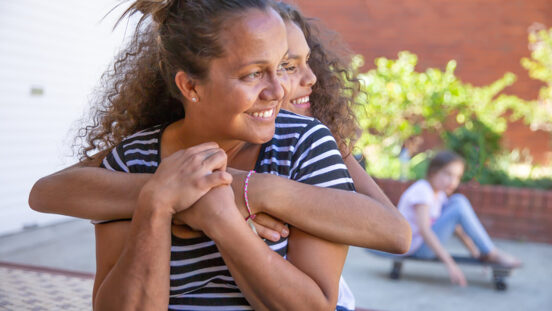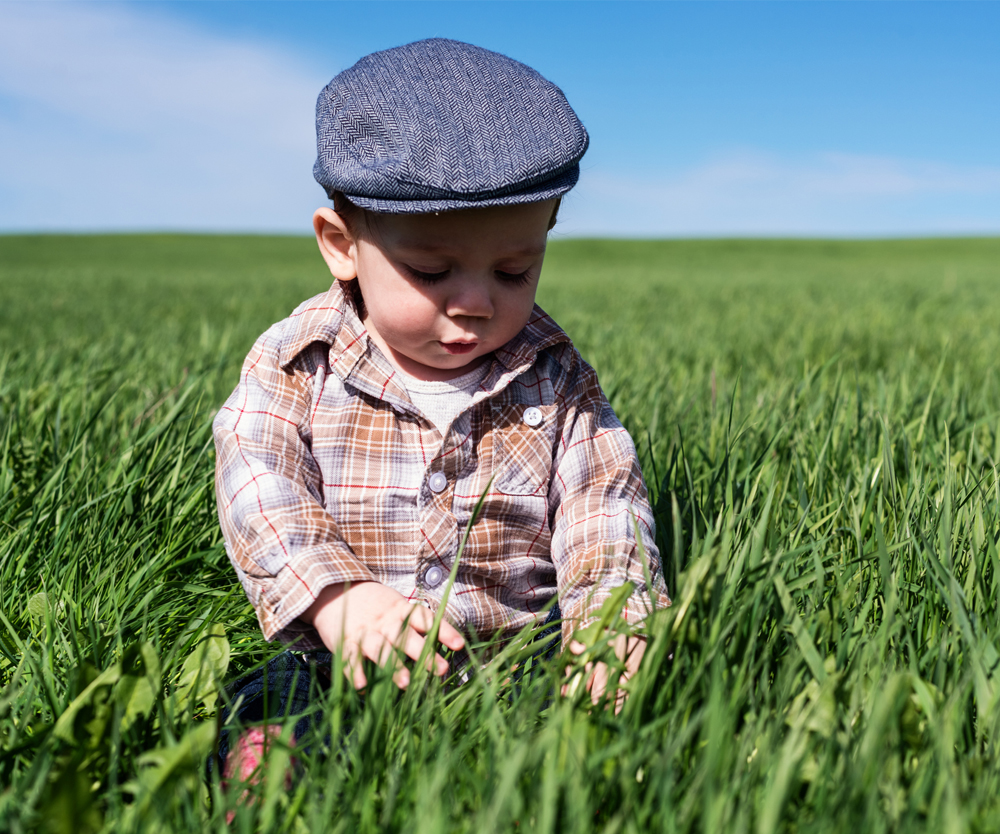The Bluey episode that is literally a ‘how-to-play’ guide for parents
Bluey creator Joe Brumm explains why creative play is so important.
Many of us can all agree – when our children request an episode of Bluey, we’re all secretly relieved. It is, after all, fun to watch at any age and a welcome relief from yet another toddler’s off-tune rendition of singing along to ‘Fruit Salad, Yummy Yummy.’
According to outdoor education experts, Bluey also often provides a best practice guide on how to make the most of play. And by play, we mean the serious business of nurturing all-important development skills that will set up our children for happier, healthier lives.
It’s something that even Bluey creator himself, Joe Brumm, had underestimated until a recent conversation with outdoor educator and play environment creator, Lukas Ritson, for the Wearthy podcast Play It Forward.
In the episode, Joe went into detail about how Bluey was inspired by a specific incident with his daughter and her experience, moving from play-based learning to academic learning and that wasn’t an easy transition.
Of the experience, Joe said: “It got me thinking, well, what is it about play that when it was taken away had such a dramatic effect? That’s when I started reading about play. It’s a very important step in a kid’s life. As far as I can tell, it’s when they’re first learning the social rules and they are mastering their own temperament… That’s the stage where play is a really good vehicle for them, learning to move out of toddlerhood and into a social setting.”

Bluey creator Joe Brumm says the show was inspired by a specific incident with one of his daughters.
According to Joe, Bluey was very much inspired by “the smaller little idiosyncratic moments” that he was witnessing while being there “in the wild” with his daughters.
That said, as the discussion delved deeper into the science of play-based learning, even Joe himself was fascinated to learn just how much the episode The Creek provided a perfect guide for the types of experience experts in the space, like Lukas, stand by.
Joe was reading a lot about play when writing the episode and was inspired by the learnings. “How the brain learns and how it operates when it’s in a natural environment as opposed to a man-made environment. And, you know, one of the articles I think was using playgrounds as comparison and it was saying, you know playgrounds, they have even surfaces – whereas, when you’re in nature, you’re going to an uneven surface, and just the calculations that your brain needs to do just with footwork is completely different,” he said.

“She (Bluey) falls down, but she gets back up – and that’s what we want our children to be capable of if they’re to go on and be strong, capable adults,” says Wearthy founder, Lukas Ritson.
The episode in question opens with what those in the field refer to as bias play. The swings, the bouncer, both examples of prescriptive play that locks a child into one activity and limits their imagination, freedom and creativity. In the Bluey episode, the boredom is made very clear – and that’s part of the fact that this type of play excludes the child from the experience of it.
Enter a suggestion by border collie friend, McKenzie and they’re all off for an unscheduled adventure to The Creek.
For Bluey, it’s not an easy journey – and here lies one of the most important lessons for parents in play. Our children need to face fears early and in doing so, they learn courage, confidence, resilience and problem solving skills, as well as setting boundaries and understanding where being pushed is a positive and where it crosses a line. Outdoor, nature-based play is perfect for this, it takes a child outside their comfort zone, and is an uncontrolled environment that offers both risk and reward.
“Bluey is hesitant to start, the bugs and a spider web are intimidating and she has to overcome these initial fears. In fact, there’s a part where Bluey faces uneven ground and has to learn how to navigate a risky environment, she falls down, but she gets back up – and that’s what we want our children to be capable of if they’re to go on and be strong, capable adults,” Lukas said.

Wearthy founder, Lukas Ritson says The Creek episode of Bluey demonstrates many of the benefits of open-ended play.
Later on in the episode, there’s a jump between rocks and her fear is evident. Bandit (Dad) shows healthy levels of encouragement, she jumps and the sense of self-pride in her success will stay with her forever, fuelling a sense of achievement and accomplishment, even in the face of fear.
One part of the episode that Joe and Lukas were most focused on when they chatted on the Play It Forward podcast was the open-ended nature of playing at the creek, compared to the playground. Specifically when they arrive, Bluey says “so what are we supposed to play?” to which Bandit responds, “I don’t know, it’s the creek, you just sorta muck around.”
For Lukas, the way the episode was created demonstrates so many of the benefits for a child engaging in open-ended play (no instructions, no limits). First, the obvious physiology of it all and how that movement helps children build fundamental motor skills. Second, the imaginative play and connectedness to nature. In the episode they go on to build and create boats from things that are laying around, a further demonstration of creativity and problem solving. They all also treat Dad to a pretend day spa, fuelling the uncapped imagination. They go on to use big rocks to build a dam-type structure, which are examples of the very first ways our children start to understand the complexities of maths and science.

Wearthy specialises in creating outdoor play environments that foster natural learning and build confidence in young children.
Lukas’ advice to parents who are looking for ways to engage their children in the best play for development; “Let them run free in nature. Play isn’t about outcomes, it’s about entertaining our children for a set time, it’s about letting them create their own experiences. And the perfect thing is, that takes the pressure off you as a parent, you don’t need to come up with the idea, let your child do what children are designed to do – explore, imagine, create, build and importantly, learn, learn the lessons and skills that will equip them well into their adult lives.”
The Play It Forward episode featuring Joe Brumm is available on Spotify, Apple Podcasts and SoundCloud.




